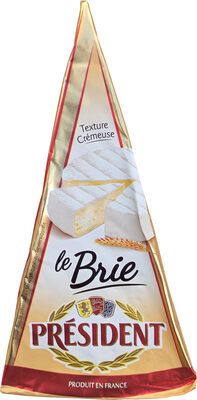
Barcode: 3228020232028
le Brie
HALAL
📝 Reason: While the base ingredients cream and pasteurized milk are considered Halal, soft cheese is Doubtful due to the widespread use of animal rennet in traditional French cheeses like Brie. Unless the rennet source is specified as microbial or there is Halal certification, there is a risk that the rennet is from non-Halal-slaughtered animals, which Islamic dietary laws do not permit (Quran 5:3). For details see IFANCA and Halal Food Authority.
🏷️ Category: Dairies, Fermented Foods, Fermented Milk Products, Cheeses, Soft Cheeses, Cow Cheeses, Soft Cheeses With Bloomy Rind, French Cheeses, Bries
📄 Certificates: Vegetarian, Green Dot, Incorrect Data On Label, Made In France, Vegetarisch
Ingredients:
Details
Understanding the Halal Status of le Brie
le Brie cheese has gained popularity for its soft texture and rich flavor. However, when it comes to dietary restrictions, especially in the Muslim community, the question arises: Is le Brie Halal? In this article, we will explore the Halal status of le Brie by examining its ingredients, E-numbers, and any necessary certifications.
Ingredients of le Brie
le Brie is primarily made from the following ingredients:
- Soft cheese
- Cream
- Pasteurized milk
Let’s take a closer look at each ingredient and its Halal status.
Soft Cheese
The primary component of le Brie, soft cheese, raises some eyebrows regarding its Halal status. The status is considered doubtful due to the traditional use of animal rennet in its production. Rennet is an enzyme derived from the stomach lining of ruminant animals, which may not be Halal if sourced from non-Halal slaughtered animals. Since no Halal certification is specified for the rennet used in le Brie, it presents a risk according to Islamic dietary laws (Quran 5:3).
Cream
Cream, which is derived from cow’s milk, is generally regarded as Halal, provided it does not contain any Haram additives. The cream’s origin plays a vital role in its status; if it is purely from cows and free from any non-Halal additives, consumers can consider it Halal.
Pasteurized Milk
Pasteurized milk, also sourced from cows, is also deemed Halal. Similar to cream, the important factor is ensuring that no Haram substances are introduced during its processing. If sourced responsibly, pasteurized milk has a clear path to being compliant with Halal dietary laws.
E-Numbers and Halal Status
le Brie does not contain any explicitly listed E-numbers; however, it is important to be cautious with the ingredients. Let’s summarize the status of each ingredient:
- Soft Cheese: Doubtful. Potential rennet sources may originate from non-Halal animals.
- Cream: Halal. Derived solely from cows without Haram additives.
- Pasteurized Milk: Halal. Sourced from cows under proper conditions.
Certification Context
le Brie holds various certificates such as Vegetarian and the Green Dot. However, there is no specific Halal certification visible, which adds to the uncertainty regarding its complete compliance with Halal standards. The absence of Halal certification could be a point of concern for consumers strict about their dietary practices.
It’s important to consult organizations dedicated to Halal certification like Halal Food Authority and IFANCA for detailed guidance on cheese products, especially those that may contain rennet.
Conclusion
In summary, the Halal status of le Brie cheese is complex. While cream and pasteurized milk can be categorized as Halal, the ingredient of soft cheese remains a point of concern due to the possibility of animal rennet sourced from non-Halal animals. Consumers are encouraged to proceed with caution and consider their individual dietary needs. For those adhering strictly to Halal guidelines, alternatives with verified certifications may be a safer choice.
